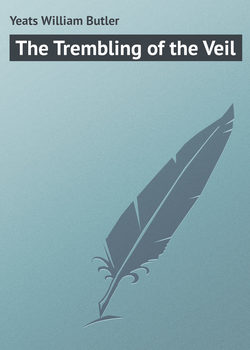Читать книгу The Trembling of the Veil - Yeats William Butler, William Butler Yeats - Страница 11
BOOK I
FOUR YEARS – 1887-1891
X
ОглавлениеI saw a good deal of Wilde at that time – was it 1887 or 1888? – I have no way of fixing the date except that I had published my first book The Wanderings of Usheen and that Wilde had not yet published his Decay of Lying. He had, before our first meeting, reviewed my book and despite its vagueness of intention, and the inexactness of its speech, praised without qualification; and what was worth more than any review he had talked about it and now he asked me to eat my Christmas dinner with him believing, I imagine, that I was alone in London. He had just renounced his velveteen, and even those cuffs turned backward over the sleeves, and had begun to dress very carefully in the fashion of the moment. He lived in a little house at Chelsea that the architect Godwin had decorated with an elegance that owed something to Whistler. There was nothing mediaeval, nor Pre-Raphaelite, no cupboard door with figures upon flat gold, no peacock blue, no dark background. I remember vaguely a white drawing room with Whistler etchings, “let in” to white panels, and a dining room all white, chairs, walls, mantelpiece, carpet, except for a diamond-shaped piece of red cloth in the middle of the table under a terra-cotta statuette, and I think a red shaded lamp hanging from the ceiling to a little above the statuette. It was perhaps too perfect in its unity, his past of a few years before had gone too completely, and I remember thinking that the perfect harmony of his life there, with his beautiful wife and his two young children, suggested some deliberate artistic composition.
He commended and dispraised himself during dinner by attributing characteristics like his own to his country: “We Irish are too poetical to be poets; we are a nation of brilliant failures, but we are the greatest talkers since the Greeks.” When dinner was over he read me from the proofs of The Decay of Lying and when he came to the sentence: “Schopenhauer has analysed the pessimism that characterises modern thought, but Hamlet invented it. The world has become sad because a puppet was once melancholy,” I said, “Why do you change ‘sad’ to ‘melancholy’?” He replied that he wanted a full sound at the close of his sentence, and I thought it no excuse and an example of the vague impressiveness that spoilt his writing for me. Only when he spoke, or when his writing was the mirror of his speech, or in some simple fairy tale, had he words exact enough to hold a subtle ear. He alarmed me, though not as Henley did, for I never left his house thinking myself fool or dunce. He flattered the intellect of every man he liked; he made me tell him long Irish stories and compared my art of storytelling to Homer’s; and once when he had described himself as writing in the census paper “age 19, profession genius, infirmity talent” the other guest, a young journalist fresh from Oxford or Cambridge, said, “What should I have written?” and was told that it should have been “profession talent, infirmity genius.” When, however, I called, wearing shoes a little too yellow – unblackened leather had just become fashionable – I realized their extravagance when I saw his eyes fixed upon them; and another day Wilde asked me to tell his little boy a fairy story, and I had but got as far as “Once upon a time there was a giant” when the little boy screamed and ran out of the room. Wilde looked grave and I was plunged into the shame of clumsiness that afflicts the young. When I asked for some literary gossip for some provincial newspaper, that paid me a few shillings a month, he explained very explicitly that writing literary gossip was no job for a gentleman.
Though to be compared to Homer passed the time pleasantly, I had not been greatly perturbed had he stopped me with: “Is it a long story?” as Henley would certainly have done. I was abashed before him as wit and man of the world alone. I remember that he deprecated the very general belief in his success or his efficiency, and I think with sincerity. One form of success had gone: he was no more the lion of the season and he had not discovered his gift for writing comedy, yet I think I knew him at the happiest moment of his life. No scandal had touched his name, his fame as a talker was growing among his equals, and he seemed to live in the enjoyment of his own spontaneity. One day he began: “I have been inventing a Christian heresy,” and he told a detailed story, in the style of some early father, of how Christ recovered after the Crucifixion, and escaping from the tomb, lived on for many years, the one man upon earth who knew the falsehood of Christianity. Once St Paul visited his town and he alone in the carpenters’ quarter did not go to hear him preach. The other carpenters noticed that henceforth, for some unknown reason, he kept his hands covered. A few days afterwards I found Wilde with smock frocks in various colours spread out upon the floor in front of him, while a missionary explained that he did not object to the heathen going naked upon week days, but insisted upon clothes in church. He had brought the smock frocks in a cab that the only art-critic whose fame had reached Central Africa might select a colour; so Wilde sat there weighing all with a conscious ecclesiastic solemnity.
